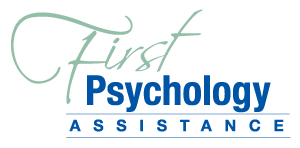Breaking the two week barrier is a major milestone for any resolution and this is especially true if you have started on the road to tackling an addiction. Dealing with any addictive behaviour is not easy – it’s a daily battle – but let’s not forget how hard these first few weeks/months can be on your friends, family and work colleagues too.
We've developed six steps to successful addiction busting that won’t impact on your workplace.
Safety in numbers
It can really help to build a group of allies at work who can understand what you’re working towards and be on hand to help you through the difficult times. You’ll also find that the more people who know about your efforts, the harder it will be to fall off the wagon and go back to your addiction.
Keep busy
Very often addictive behavior stems from one of two reasons: habit and boredom. In order to keep on track, it’s really important to keep yourself busy. This is often easier to do at work than it is at home, so take advantage. Write to-do lists, take a stroll, read something, do whatever it takes to keep your mind occupied so it doesn’t slip back into old behaviours.
Secure a sponsor
Sponsors are something usually associated with alcoholics anonymous, but the concept is useful when battling with any addiction. We’re all used to having performance reviews at work, so why not think about finding someone at work to make sure you keep to your resolution? Given that if you succeed, your performance at work will also benefit, it makes sense to recruit someone to help keep you accountable for your actions at work.
Take the time to avoid your triggers
A study in 2015 on addictive behaviour found that there are certain person-specific cues that can trigger addictive cravings. These cues include things like spending time with friends who share the same addiction, places and surroundings that are linked to your addictive behaviour. It is important to understand that these triggers and cues are just as likely to be present in your work environment as they are at home.
Rearrange your routine
Chances are your addiction will have touched your professional life, as well as your private life. The cigarette break with your team colleagues if you’re a smoker, the after work celebratory drinks when you’re looking to cut out the alcohol, the business lunches with clients when you’re trying to change your relationship with food. All of these addictions require a change in your work habits if you really are going to succeed.
Think of your addiction as you would a work goal / challenge
We all face challenges every day in our working life. So your colleagues will all know what it is like to face a challenge and overcome it. Similarly, they will all appreciate what it takes to meet a goal. However, they will not appreciate the emotional investment you are making to kick your habit. Take the time to explain to your colleagues what you are trying to achieve and why it’s important to you – and the benefits it will bring to the workplace. Being upfront will help build the support you need to help you beat your addiction for good.
Remember, battling an addiction is hard work. It requires determination and dedication every single day. Think of overcoming your addiction as a new way of life, rather than a short term action, and this will help to develop the mindset you need to break your habit for good.

No comments:
Post a Comment